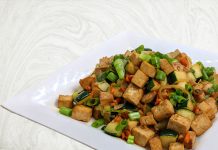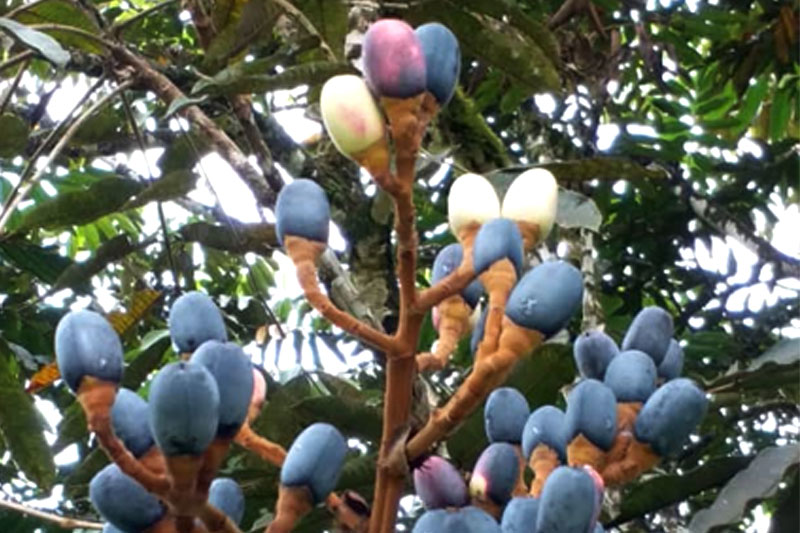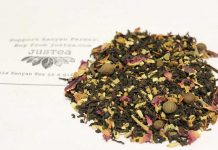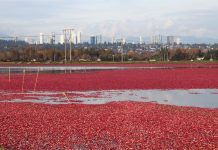Honeycrisp apple is sweet tasting, has a firm and crunchy texture. The apple cultivar is a cross between Macoun and Honey Gold. Great as a snack, and is best used for making salads, sauces and baked goods. (Nikao Media)
Where do apple trees originate? What’s in An Apple that Keeps the Good Doctor Away? Find out how this pomaceous fruit can do to improve your heart health, enhance your fountain of youth and more…
Origin of Apples
Apples come in diverse shades of red, green and yellow. Did you know the pear, peach, cherry, strawberry and raspberry are relatives of the apple? They are all from the Rosaceae (rose) family.
DNA analysis points to Central Asia as the home to the wild Malus sieversii – ancestor of today’s domesticated apple (Malus domestica). According to archeological evidence, humans have been savouring apples as early as 6500 B.C. It was once the favourite fruit of ancient Greeks and Romans.
There are over 7,500 apple varieties worldwide. The Lady or Api apple being one of the oldest species. The crab apple is the only native North American species.

Nutritional Powerhouse of Flavonoids
Nothing beats a bite of the juicy red apple to quench your thirst and satisfy your sweet craving. Best of all, it gives a boost to your health. It makes absolute sense why An Apple a Day Does Keep the Good Doctor Away.
Apples have a wide range of phytonutrients, according to researchers in the article, Apple Phytochemicals and Their Health Benefits. Many of these phytonutrients have strong antioxidant and anticancer activities.
Apples are phytonutrient-rich with flavonoids (like quercetin). They are also packed with vitamins, minerals, dietary fibre, and are sodium-fat-cholesterol free. Flavonoids are a group of plant-based antioxidant compounds concentrated mainly in the skin.
Flavonoids gives the apple its colour, scent, and flavour
These plant pigments are responsible for the colour, scent, and flavour of many flowers, vegetables and fruits including the apple. Pigment levels differ depending on apple cultivar.
Consuming apple seeds in large quantities are not recommended due to its cyanide content. Pectin is the soluble dietary fibre found in the skin, core and pulp of fresh apples.
Studies have linked apples with decreased risk of chronic diseases like cardiovascular disease, cancer and asthma.
Top 7 Health Benefits
-
- Reduce heart disease: The quercetin in apples may help prevent chronic inflammation, lower hypertension, and protect arteries from plaque build-up.
- Lessen risk or support recovery from respiratory diseases including asthma and bronchitis. Quercetin helps shield the lungs from atmospheric pollutants.
- Improve memory and avert degenerative conditions like Alzheimer’s. Red Delicious apples have strong neuro protective effects.
- Bone strengthening: boron mineral in red apples is beneficial for regulating hormones and preventing osteoporosis.
Apples – a natural remedy for treating digestive disorders.
- Anti-aging: improve youthfulness – flavonoid, phloridzin prevents glycation, a common cause of aging.
- Regulate digestive system: apple pectin assist in regulating bowel movements. It is also used as a natural remedy for treating digestive disorders.
- Protection against cancer: UK researchers revealed that apple pectin protects against cancer.
Related: Abbotsford: Culinary and Fun Getaways Packed with Tasty Thrills
Washing and Storing Apples
Apples are enjoyed whole, in juice and cider, as a vinegar, sauce or dessert. Wash an apple only when you are ready to eat. This avoids stripping off some of the skin’s natural protection.
Rinse under running water gently scrubbing with your hands or soft brush. Soap is not recommended. Apples are ranked among the top fruits on the ‘dirty dozen foods with high pesticide residue’ list.
Washing the apple skin is vital to removing contaminants especially in non-organic apples.
They are best refrigerated to maintain freshness. Refrigerated apples last 10 times longer. Late-season apples (winter apples) are the best keepers as they stay fresh through winter into spring.
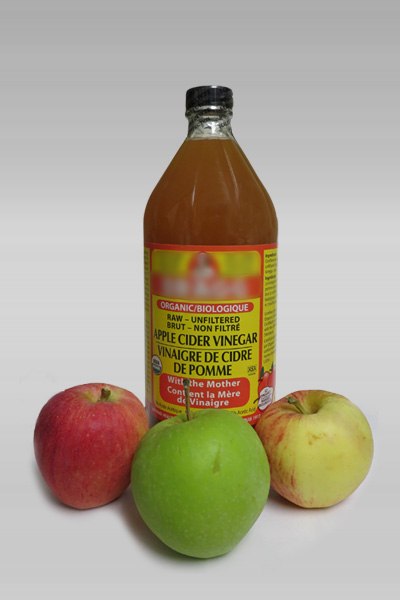
Apple Cider Vinegar and Its Benefits
Apples can be made into cider vinegar via a two-step fermentation process. Step one, converting the natural fruit sugar to alcohol. Step two, turning the alcohol to acetic acid.
Organic, unfiltered, unrefined or unpasteurized apple cider vinegar containing the ‘Mother’of vinegar (murky amino acid-based substance) can help:
- Improve digestion by breaking down acidic foods like meat, dairy, legumes and nuts
- Enhance weight loss by speeding up metabolism
- Lessen body odor by adjusting the pH level of skin
- Regulate and delay the rise in blood sugar after a meal
- Control bad breath
Apple cider vinegar also makes a great natural household cleaning agent. It’s an effective disinfectant for inhibiting mold growth and removing pesticide chemicals from your fruits and vegetables.
Links
Nutrition Journal: Apple Phytochemicals and Their Health Benefits
Reader Digest: 13+ Health Benefits of Apple Cider Vinegar
Updated: September 16, 2025





